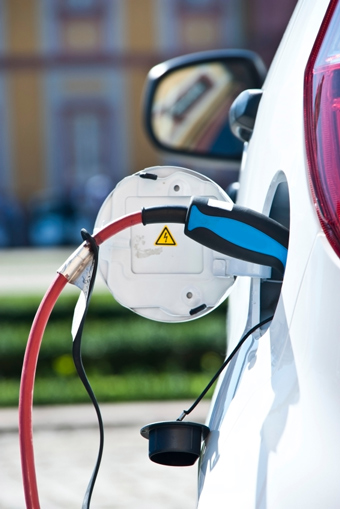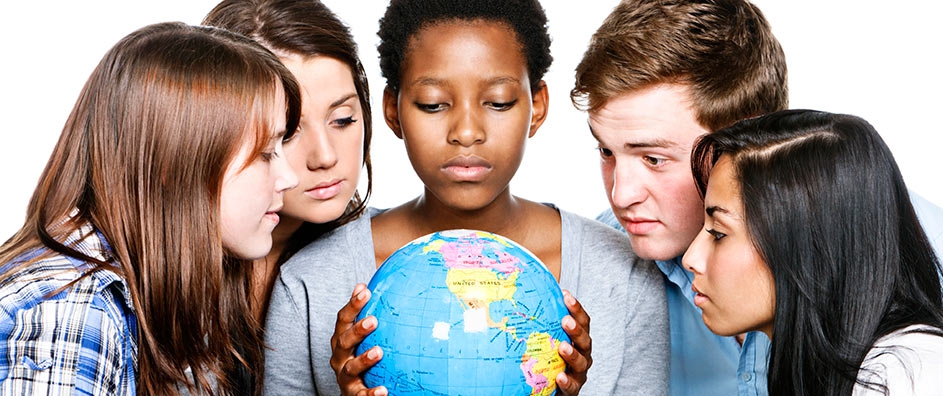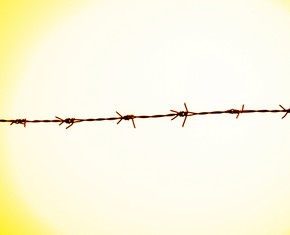The views expressed in our content reflect individual perspectives and do not represent the authoritative views of the Baha'i Faith.
The first short essays in this series of articles considered the worldwide climate change crisis from three different perspectives–our evolution as a species; the great need for a widening of our human compassion; and how civilization can lead to barbarism without spirituality and high ideals.
In this essay and the final one in the series, we’ll shift our focus away from the problem and begin to consider some solutions.
 Many of us have already started to live more conscious, environmentally-aware lives. We recycle, we try to eat organically and locally, we conserve water, we use fuel-efficient appliances and cars and buildings. We believe that when enough people eventually make those same changes and adjustments in their lives, we will have successfully dealt with the challenges of climate change. But is that true?
Many of us have already started to live more conscious, environmentally-aware lives. We recycle, we try to eat organically and locally, we conserve water, we use fuel-efficient appliances and cars and buildings. We believe that when enough people eventually make those same changes and adjustments in their lives, we will have successfully dealt with the challenges of climate change. But is that true?
No, the increasing scientific consensus says.
For example: Gernot Wagner, an Environmental Defense Fund economist and the author of the book But Will the Planet Notice? How Smart Economics Can Save the World, says no amount of environmentally-responsible personal actions will rescue the Earth from its ongoing atmospheric heat build-up. “News flash: recycling isn’t going to stop global warming,” Wagner says. “All of these individual steps don’t add up to nearly enough.” Wagner warns that oceans will continue to get hotter, extreme weather patterns will become the new norm and our rapidly-rising global temperature will keep going up–as long as the major industrial nations continue in their historic inability to unify around a serious, binding climate agreement. Climate change, Wagner says emphatically, has only one potential solution: “Policy. That’s what makes the difference.”
This stark analysis doesn’t mean, of course, that we should all give up on our efforts to reduce our own environment impacts and carbon footprints. We should still each make the individual contributions we can. Instead, it means we have to go beyond our solely individual actions, find ways to join forces with others, then identify and implement the policies that will address such a massive global problem:
The unity which is productive of unlimited results is first a unity of mankind which recognizes that all are sheltered beneath the overshadowing glory of the All-Glorious; that all are servants of one God; for all breathe the same atmosphere, live upon the same earth, move beneath the same heavens, receive effulgence from the same sun and are under the protection of one God. This is the most great unity, and its results are lasting if humanity adheres to it; but mankind has hitherto violated it, adhering to sectarian or other limited unities such as racial, patriotic or unity of self-interests; therefore no great results have been forthcoming. Nevertheless it is certain that the radiance and favors of God are encompassing, minds have developed, perceptions have become acute, sciences and arts are widespread and capacity exists for the proclamation and promulgation of the real and ultimate unity of mankind which will bring forth marvelous results. – Abdu’l-Baha, Foundations of World Unity, p. 66.
This is new. For the first time in human history, our continuing existence depends on our ability to unify with one another. Our fractious political systems have not produced that unity, so we need to do it ourselves. We need to inspire our whole family—the human family—to tackle climate change. This spiritual conduct—the effort we put forth to unify humanity and protect the planet—can have an enormous impact, not just on individuals, but on entire groups, movements and nations.
How can we do that? We can educate ourselves about the climate, and talk about it with everyone we know. We can raise, explain and discuss the issue among the groups we already participate in—clubs, civic organizations, religious gatherings, our local and regional governments. We can join or form climate change coalitions locally, nationally and internationally. We can become active members of spiritual and religious communities, like the Baha’is, who actively seek solutions and work to implement them. We can support, vote for and advocate the public policies that truly address the problem. We can initiate unified, supportive collaboration with like-minded people. We can become active, aware and caring members of the human family who promote and build unity:
It is my hope… that these many rivers, each flowing along in diverse and separated beds, will find their way back to the circumambient sea, and merge together and rise up in a single wave of surging oneness; that the unity of truth, through the power of God, will make these illusory differences to vanish away. This is the one essential: for if unity be gained, all other problems will disappear of themselves. – Abdu’l-Baha, Selections from the Writings of Abdu’l-Baha, p. 29.
None of us can achieve it alone. Each of us takes part in a larger community–and transforming our communities will lead the way to a much greater and more sustainable outcome. If our municipalities or countries or companies or governments behave irresponsibly, if they fail to understand the massive global challenge climate change represents, we no longer have the luxury of waiting for them to gradually come to a better understanding on their own. If we do our kind and loving duty as members of the human family, we’ll start today, urging and helping those organizations to realize their role as the stewards of humanity’s future.
You May Also Like
Comments

















It's the first step to change.
Sandra Powell
And, this series is critical...
One thing---I finally figured out that the small, red, boxed link went to the series page...
Perhaps, in the body of series-posts, you could make the words "the series" an additional link---for those who don't notice the boxed link? Or, add the words, "Read the whole series" in the boxed link?